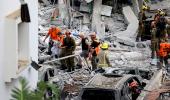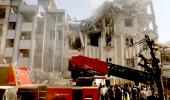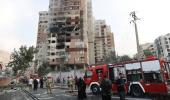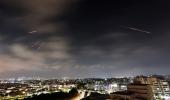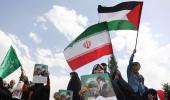Iran launched retaliatory strikes against locations across Israel on Saturday, killing at least three people and wounding dozens.

Tehran's attacks comes after a series of blistering Israeli attacks on the heart of Iran's nuclear programme and its armed forces.
"Israelis are currently running for shelter in northern Israel as sirens sound due to another missile launch from Iran," the IDF said on X.
According to the Israeli military, dozens of missiles were launched from Iran, "some of which were intercepted".

Iran launched waves of drones and ballistic missiles at Israel, where explosions lit the night skies over Jerusalem and Tel Aviv.
The Israeli military has urged civilians to head to shelter for hours.
Both Israel and Iran said their attacks would continue, raising the prospect of another protracted Mideast conflict.
Israeli Prime Minister Benjamin Netanyahu has told the Iranians that 'more is on the way' after the Israeli strikes.

Iran's Supreme Leader Ayatollah Ali Khamenei accused Israel of starting a war. "The Iranian nation must be guaranteed that our response will not be half-measured," he said.
UN Secretary-General Antonio Guterres has urged both Israel and Iran to halt their attacks on one another, while calling for diplomacy.
“Israeli bombardment of Iranian nuclear sites. Iranian missile strikes in Tel Aviv. Enough escalation. Time to stop. Peace and diplomacy must prevail,” Guterres wrote on X.

Among those killed were three of Iran’s top military leaders: one who oversaw the entire armed forces, Gen. Mohammad Bagheri; one who led the paramilitary Revolutionary Guard, Gen. Hossein Salami; and the head of the Guard’s ballistic missile program, Gen. Amir Ali Hajizadeh.
Israel's ongoing airstrikes and Iran's retaliation raised concerns about all-out war between the countries and propelled the region, already on edge, into even greater upheaval.
Countries in the region condemned Israel's attack, while leaders around the globe called for immediate deescalation from both sides.
